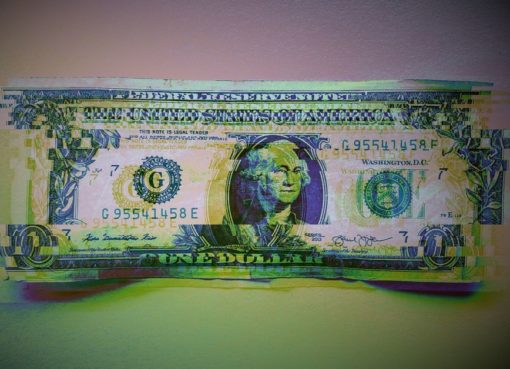MIAMI – The federal civil trial of Kleiman v. Wright continued in Miami Thursday, with witnesses for the defense suggesting it was unlikely that Dave Kleiman had a business partnership with Craig Wright to invent and mine bitcoin. He had severe health problems, poor coding skills and never mentioned any such project to his close friends. When he’d entered into a different business partnership, it had been formalized, they testified.
Wright claims to have invented bitcoin, although that claim has been met with considerable skepticism and has never been successfully proven. The idea for the cryptocurrency was outlined in an October 2008 white paper posted online by someone using the pseudonym Satoshi Nakamoto, who stopped posting in 2011.
The federal lawsuit is rooted in the parties’ assumption that Wright is Satoshi – but alleges that he invented and mined bitcoin with the help of Dave Kleiman, who died in 2013. The lawsuit, filed by Kleiman’s brother Ira Kleiman on behalf of Dave’s estate and a company Dave controlled, alleges that the estate is entitled to assets still tied to Satoshi, which include bitcoin that’s now worth about $66 billion and intellectual property.
Read more: Kleiman v. Wright: Bitcoin’s Trial of the Century Kicks Off in Miami
Physical limitations
Dave Kleiman, who’d become a paraplegic after a 1995 motorcycle accident. was in a hospital almost continuously – about 850 days – from September 24, 2010 to March 21, 2013. Infectious disease expert Dr. D. Stewart MacIntyre, Jr. testified that based on his review of medical records, Kleiman suffered from pressure ulcers (bedsores), brittle bones and infections, including MRSA. He took medicines including antibiotics and Valium. He was paralyzed from the waist down and nurses were required to turn him every two hours.
MacIntyre said Kleiman was frequently interrupted by staff and therapists, suggesting that it would be hard to get work done. An IV could have made it hard to move around. To leave the hospital required permission from a doctor, like a furlough. Kleiman asked to leave one day to oversee installation of a mechanical lift in his bathroom, and never returned. Kleiman was found dead in April 2013.
On cross-examination, Dr. MacIntyre was pressed to concede,”I was not asked to evaluate his brain” nor his mental capacity.
Plaintiffs’ counsel ran through exhibits, seeking to show that Kleiman’s physical limitations wouldn’t have precluded him from working. One mental state exam showed Kleiman receiving a score of 30/30 and noted “no evidence of difficulty understanding multi-step or complex instructions … or complex or abstract information.”
Hospital staff who treated him documented “patient observed on laptop” and “patient always on his computer.” A psychology note said Kleiman worked in computer forensics and “the patient indicated his ability to continue working has helped him cope with his medical problems.”
But in one email dated April 9, 2008, Dave Kleiman told Craig Wright about his medical problems, adding, “I have not worked in about 10 days.”
Kimon Andreou worked with Dave Kleiman at a West Palm Beach company called S-Doc, also called Securit-e-doc, from 2002 to 2004. Andreou testified that Kleiman became one of his closest friends. They would do things like get dinner or attend gun shows together. Andreou said Kleiman had “minimum to no” coding skills.
Andreou would visit Kleiman after work when he was in the hospital. He had “surgery after surgery after surgery,” Andreou said.
Financial difficulties
Evidence in the case includes about 200 pages of text messages between the two men, dated from 2009 to April 18, 2013. Some messages from late 2010 into mid 2011 indicate that Kleiman told Andreou he was behind on mortgage and utility payments. He sent Andreou Lotto numbers so that Andreou could buy him some tickets.
Andreou was questioned by defense attorney Jorge A. Mestre:
“During Dave Kleiman’s lifetime, did he ever tell you that he had formed a business partnership with Dr. Craig Wright to either mine or invent bitcoin?”
“No.”
“Did he ever tell you he had hundreds of millions of dollars in bitcoin?”
“No.”
On cross-examination, Andreou was asked about an email he’d written after Dave’s death, which stated, “If all the documents are authentic, then with the addition of the anecdotal information we have from discussions with Dave, all point to Dave and Craig indeed being behind Bitcoin.”
Andreou said that after claims of Kleiman’s involvement with bitcoin hit the news, “it seemed very plausible and I was convinced at that time they were the co-creators of Bitcoin.” But Andreou insisted his thinking at that time was based on third-party information, and ultimately he did not believe Kleiman did coding or programming for Bitcoin, nor was he the hands-on-the-keyboard person behind Bitcoin.
Plaintiffs’ counsel pointed out that after leaving S-doc, Andreou went to work for the Royal Caribbean cruise line, where his boss was the sister of defense attorney Mestre.
Carter Conrad took the stand next, testifying that he knew of Dave Kleiman through a listserv geared to computer forensics. The two met in person at a Miami conference, and Conrad began helping Kleiman with work – at first, mostly physical tasks like unplugging and moving computers so that Dave could examine them. When Dave went into the hospital, Conrad began taking on additional work and eventually suggested they formalize their partnership. A third person, Patrick Paige, joined their business, too.
Other business documentation
The defense team showed documents – such as a profit & loss statement, an operating agreement, and a registration with the state – illustrating their point that the resulting firm, Computer Forensics LLC, was a legitimate entity, its ownership shared evenly among the three men. Kleiman recruited a longtime friend to be their accountant and emailed him particulars such as projected revenues and how they’d split income.
On cross-examination, plaintiffs’ attorney Velvel (Devin) Freedman asked Conrad if Dave was able to write computer scripts. Conrad recalled him using scripts at a conference and said there was “a great likelihood he built them.”
Conrad said he knew of Kleiman’s financial problems and “struggled” to understand why, if Kleiman had assets, he would not have cashed those out to pay for his debts.
Freedman asked, “If bitcoin belonged to a partnership, then it would make sense?” Kleiman was honest and wouldn’t “put his hand in the cookie jar” to take from the partnership, Freedman suggested. Defense counsel objected, and the judge sustained the objection, cutting off that line of questioning.
The last witness of the day was Kleiman’s accountant friend, David Kuharcik, who testified over Zoom that he’d always prepared Kleiman’s federal tax returns. Defense attorney Amanda Marie McGovern displayed some tax documents, seeking to show that Kleiman typically would pass on all information needed to do complete and accurate returns, but did not pass on anything that reflected a legal partnership involving bitcoin.
Read more: Kleiman v. Wright: The Trial Transitions From Plaintiffs to the Defense




